Dublin City Council (DCC) cancelled the traditional Christmas tree lighting ceremony this year because it would disrupt Luas services.
It also broke with another tradition, in erecting an imported Christmas tree in O’Connell Street instead of a home-grown tree.
Apart from an ill-judged four-year period from 2008 to 2011 when the Council erected an artificial tree, Irish forests and Christmas tree farms have supplied the O’Connell Street tree over the decades. This year, the O’Connell Street tree was imported, even though an adequate supply of large trees is available in Ireland.
The 12-metre tall Nordmann fir – Abies Nordmanniana – was sourced in Belgium.
Ironically, the Council’s decision was taken at a time when Minister of State Andrew Doyle had been encouraging people to “choose a real Irish Christmas tree”.
Christmas trees up to three metres tall have been imported and exported over the years .
The O’Connell Street tree has always been regarded as the flagship of the domestic Christmas tree market and the importation of large trees, unless debarked , is prohibited from the continent because of the risk of introducing harmful insects especially the eight-toothed spruce bark beetle or Ips typographus.
The bark beetle is causing serious damage to pine, fir and spruce species throughout central Europe including Belgium.
If introduced to Ireland, it has the potential to destroy the commercial Irish forest resource.
According to the FAO, it “is the most destructive pest of spruce in its native range of Asia and Europe”.
The O’Connell Street tree is one of four large trees imported by Killarney Christmas Tree Farm for DCC.
The remainder of the trees were home-grown. The company complied with import conditions and received the necessary plant passport from the Belgian authorities.
However, many foresters and forest owners were surprised to hear that trees over 12 metres could be imported without being debarked.
Trees of this size carry more than sufficient bark to host the spruce bark beetle.
This represents a departure from the Forest Service “no bark no problem” policy when importing from countries with Ips typographus.
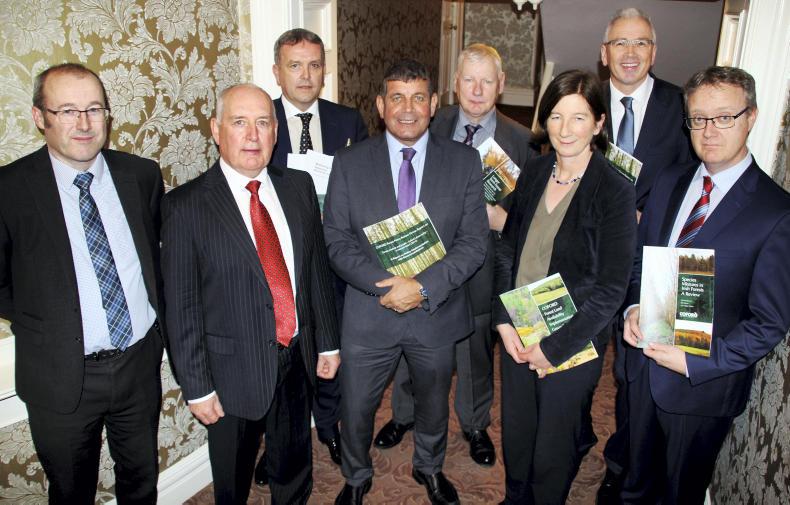
Michael Lynn, outgoing chair of COFORD, presented a suite of policy documents to Andrew Doyle, Minister for State with responsibility for forestry at a recent meeting of the COFORD council, a stakeholder-led advisory body to the Department of Agriculture, Food and the Marine on matters related to forestry. Pictured at the presentation were: Fergus Moore, COFORD, Michael Lynn, Mike Glennon, Glennon Brothers, Minister Doyle, John Phelan, Woodland, Dr Nuala Ni Fhlatharta, Teagasc, Donal Whelan, Irish Timber Growers Association and Darragh Little, Veon Ltd.
“The movement of large Christmas trees into Ireland, from areas of the EU and elsewhere where Ips typographus and other regulated bark beetles are known to be present is recognised within the Plant Health Directive and also by the Department as a phytosanitary risk and consequently, measures are in place under the EU Plant Health regime to address this risk,” said a DAFM spokesperson.
“Specifically to this case Christmas trees over three metres in height must be accompanied by a valid Protected Zone (PZ) plant passport,” she said.
She outlined how a valid PZ plant passport accompanying coniferous logs with bark attached from the officially designated Pest Free area in Scotland satisfies the legislative requirements.
A PZ is essentially an area in the EU, where a pest of quarantine significance, established in other parts of the EU, is not present despite favourable conditions for it to establish.
The Irish forest estate is surveyed annually for these quarantine organisms to maintain our PZ status.
While the plant passport issued by the Belgian authorities is acceptable it is unlikely that it would be issued – or accepted by the DAFM – for logs, unless debarked.
Foresters contacted by the Irish Farmers Journal said the same rule should apply to Christmas trees over 12m, which contain commercial log lengths.
The discovery of the Ips typographus recently in Kent – the first recording in the UK – is a warning sign to Ireland.
This is the area where ash dieback began its devastating journey eventually to Ireland.
While free trade is important to Ireland, importation of timber including large-scale Christmas trees from Ips typographus infested areas should be avoided to safeguard Ireland’s forest resource.
Minister of State Andrew Doyle, with responsibility for forestry, was presented with a collection of COFORD reports by Michael Lynn, chair of the stakeholder-led advisory body to the Department of Agriculture, Food and the Marine (DAFF) recently.
The Six COFORD council working groups delivered the following reviews and policy documents:
Forests, products and people - Ireland’s forest policy 2014 – a report on policy Implementation with recommendations.Forest Land Availability Implementation Group Report.Wood Supply and Demand on the Island of Ireland to 2025.Mobilising Ireland’s Forest ResourceLonger Term Forest Research.Species Mixtures in Irish Forests – A review.“These reports demonstrate the importance of stakeholder collaboration and the COFORD council provides an ideal platform to discuss a range of issues and provide advice to my Department on matters related to forestry,” said Minister Doyle.
While the Minister maintained that the documents demonstrated that “significant progress has been achieved in a number of policy areas,” he acknowledged that more needs to be done, saying he “will continue to look at areas identified where more progress is required”.
Minister Doyle thanked outgoing chair “Michael Lynn, for his dedication and stewardship over the last 11 years” and said “his professionalism and ability to get others to work collectively has ensured that each of the councils he has chaired has delivered on its key objectives to advance the development of the forest sector”.
A new council will be appointed from January for a three-year term chaired by Dr Eugene Hendrick, the former COFORD and DAFM senior inspector.
The Irish Farmers Journal will review the COFORD documents in future issues, especially policy recommendations, land availability, species mixtures, wood mobilisation and research.
Dublin City Council (DCC) cancelled the traditional Christmas tree lighting ceremony this year because it would disrupt Luas services.
It also broke with another tradition, in erecting an imported Christmas tree in O’Connell Street instead of a home-grown tree.
Apart from an ill-judged four-year period from 2008 to 2011 when the Council erected an artificial tree, Irish forests and Christmas tree farms have supplied the O’Connell Street tree over the decades. This year, the O’Connell Street tree was imported, even though an adequate supply of large trees is available in Ireland.
The 12-metre tall Nordmann fir – Abies Nordmanniana – was sourced in Belgium.
Ironically, the Council’s decision was taken at a time when Minister of State Andrew Doyle had been encouraging people to “choose a real Irish Christmas tree”.
Christmas trees up to three metres tall have been imported and exported over the years .
The O’Connell Street tree has always been regarded as the flagship of the domestic Christmas tree market and the importation of large trees, unless debarked , is prohibited from the continent because of the risk of introducing harmful insects especially the eight-toothed spruce bark beetle or Ips typographus.
The bark beetle is causing serious damage to pine, fir and spruce species throughout central Europe including Belgium.
If introduced to Ireland, it has the potential to destroy the commercial Irish forest resource.
According to the FAO, it “is the most destructive pest of spruce in its native range of Asia and Europe”.
The O’Connell Street tree is one of four large trees imported by Killarney Christmas Tree Farm for DCC.
The remainder of the trees were home-grown. The company complied with import conditions and received the necessary plant passport from the Belgian authorities.
However, many foresters and forest owners were surprised to hear that trees over 12 metres could be imported without being debarked.
Trees of this size carry more than sufficient bark to host the spruce bark beetle.
This represents a departure from the Forest Service “no bark no problem” policy when importing from countries with Ips typographus.

Michael Lynn, outgoing chair of COFORD, presented a suite of policy documents to Andrew Doyle, Minister for State with responsibility for forestry at a recent meeting of the COFORD council, a stakeholder-led advisory body to the Department of Agriculture, Food and the Marine on matters related to forestry. Pictured at the presentation were: Fergus Moore, COFORD, Michael Lynn, Mike Glennon, Glennon Brothers, Minister Doyle, John Phelan, Woodland, Dr Nuala Ni Fhlatharta, Teagasc, Donal Whelan, Irish Timber Growers Association and Darragh Little, Veon Ltd.
“The movement of large Christmas trees into Ireland, from areas of the EU and elsewhere where Ips typographus and other regulated bark beetles are known to be present is recognised within the Plant Health Directive and also by the Department as a phytosanitary risk and consequently, measures are in place under the EU Plant Health regime to address this risk,” said a DAFM spokesperson.
“Specifically to this case Christmas trees over three metres in height must be accompanied by a valid Protected Zone (PZ) plant passport,” she said.
She outlined how a valid PZ plant passport accompanying coniferous logs with bark attached from the officially designated Pest Free area in Scotland satisfies the legislative requirements.
A PZ is essentially an area in the EU, where a pest of quarantine significance, established in other parts of the EU, is not present despite favourable conditions for it to establish.
The Irish forest estate is surveyed annually for these quarantine organisms to maintain our PZ status.
While the plant passport issued by the Belgian authorities is acceptable it is unlikely that it would be issued – or accepted by the DAFM – for logs, unless debarked.
Foresters contacted by the Irish Farmers Journal said the same rule should apply to Christmas trees over 12m, which contain commercial log lengths.
The discovery of the Ips typographus recently in Kent – the first recording in the UK – is a warning sign to Ireland.
This is the area where ash dieback began its devastating journey eventually to Ireland.
While free trade is important to Ireland, importation of timber including large-scale Christmas trees from Ips typographus infested areas should be avoided to safeguard Ireland’s forest resource.
Minister of State Andrew Doyle, with responsibility for forestry, was presented with a collection of COFORD reports by Michael Lynn, chair of the stakeholder-led advisory body to the Department of Agriculture, Food and the Marine (DAFF) recently.
The Six COFORD council working groups delivered the following reviews and policy documents:
Forests, products and people - Ireland’s forest policy 2014 – a report on policy Implementation with recommendations.Forest Land Availability Implementation Group Report.Wood Supply and Demand on the Island of Ireland to 2025.Mobilising Ireland’s Forest ResourceLonger Term Forest Research.Species Mixtures in Irish Forests – A review.“These reports demonstrate the importance of stakeholder collaboration and the COFORD council provides an ideal platform to discuss a range of issues and provide advice to my Department on matters related to forestry,” said Minister Doyle.
While the Minister maintained that the documents demonstrated that “significant progress has been achieved in a number of policy areas,” he acknowledged that more needs to be done, saying he “will continue to look at areas identified where more progress is required”.
Minister Doyle thanked outgoing chair “Michael Lynn, for his dedication and stewardship over the last 11 years” and said “his professionalism and ability to get others to work collectively has ensured that each of the councils he has chaired has delivered on its key objectives to advance the development of the forest sector”.
A new council will be appointed from January for a three-year term chaired by Dr Eugene Hendrick, the former COFORD and DAFM senior inspector.
The Irish Farmers Journal will review the COFORD documents in future issues, especially policy recommendations, land availability, species mixtures, wood mobilisation and research.





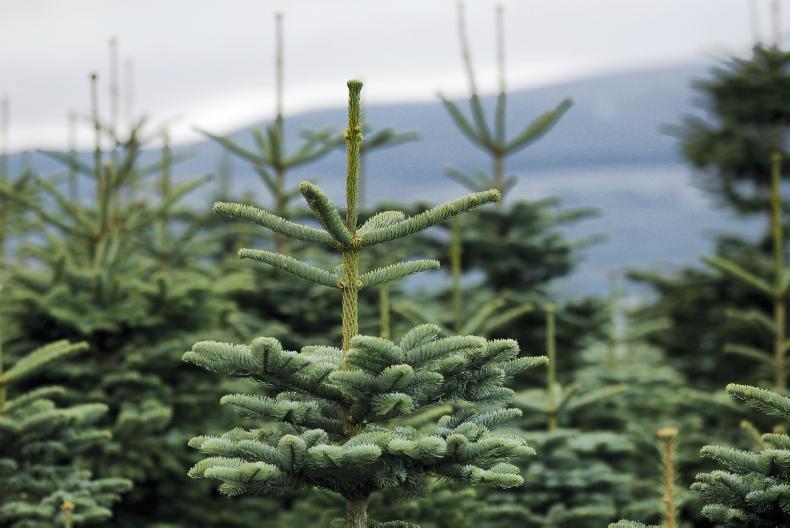
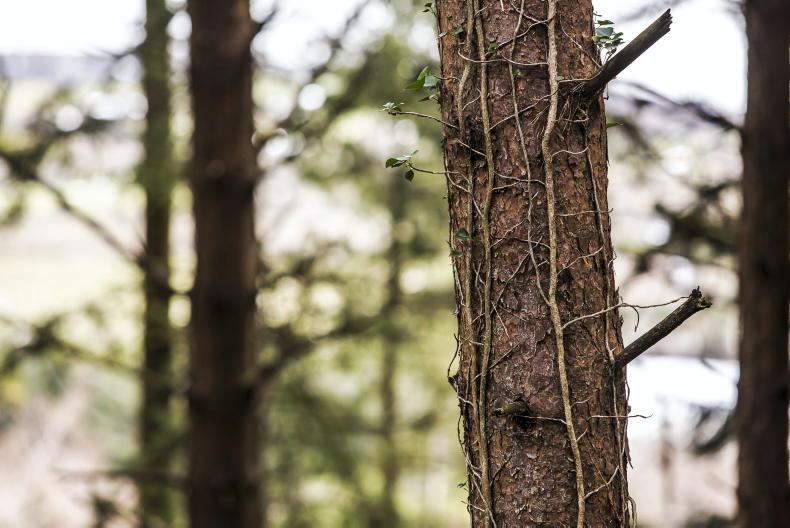

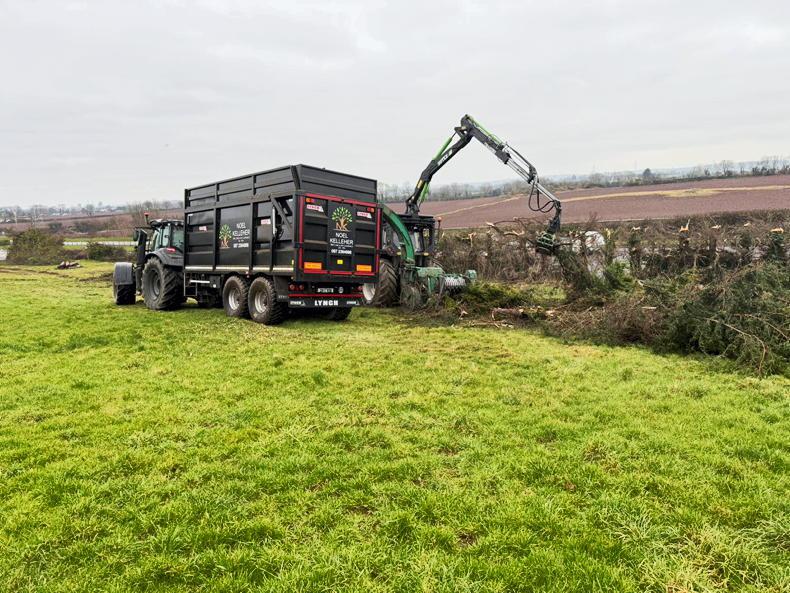
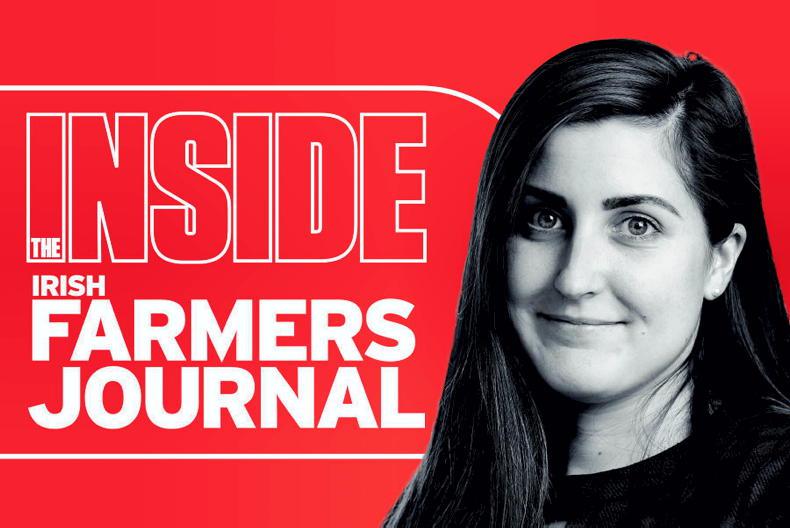
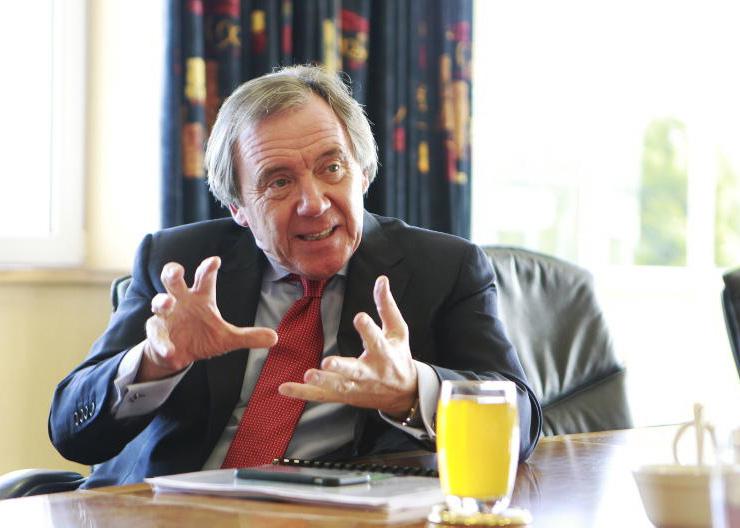
SHARING OPTIONS